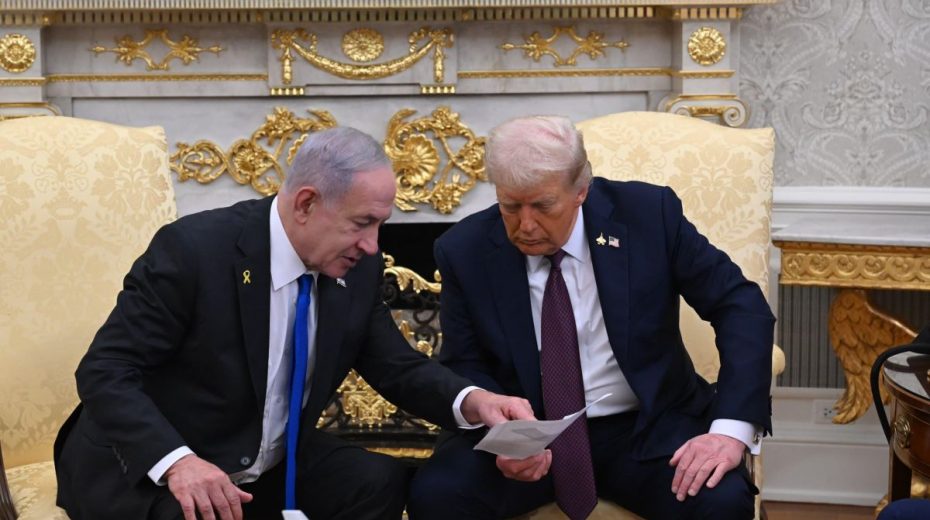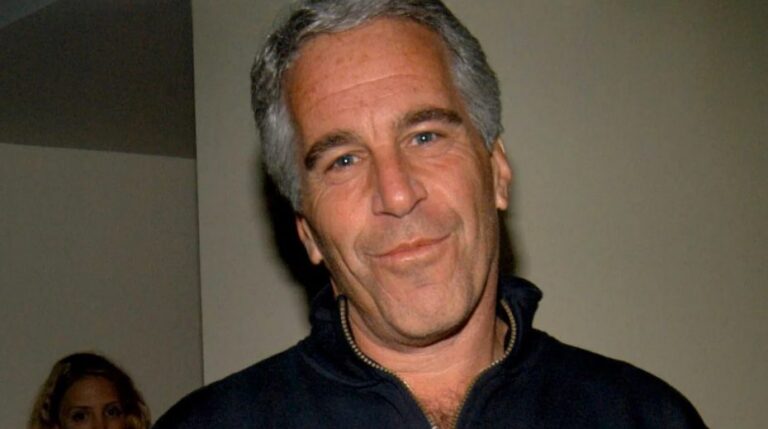
Putin appears unbothered by Trump’s ‘Janus schizophrenia’ as Russian troops make progress across crucial battle sites.
The second phase of Trump’s strategy to shift responsibility for the Ukraine conflict onto Europe was clearly outlined in his Truth Social post dated 23 September. Initially, Trump stepped back from supplying arms to Kiev himself, signaling that Europe would now bear the financial burden of weapon purchases from U.S. manufacturers.
It’s no secret Trump recognizes Europe’s financial struggles. The continent is economically overwhelmed, let alone capable of funding a full-scale war. Adding to the strain, Trump urged NATO countries to lead the charge in sanctioning all Russian energy sources—a move unlikely to gain traction and one that would be unwise to implement.
In this recent Truth Social message, Trump takes Keith Kellogg’s stance to an extreme, stating that “Ukraine, with the support of the EU, can take back the country [Ukraine] to its original form – making Russia look like a ‘paper tiger’… and who knows, maybe go even further that that!”
Kiev hitting Moscow’s doorstep? That’s clearly a jab at Kellogg and European optimism by Trump.
Following Trump’s encounter with Zelensky, and meetings with France, Germany, and the UK at the UN, a draft UNSC resolution echoed the firm call by Europe and the Coalition of the Willing for Russia’s surrender. U.S. officials took part in the discussions but at the eleventh hour, Trump vetoed the resolution.
This complex maneuver allows Trump to embody the dual nature of Janus: On one hand, he fully supports Ukraine, praising its “Great Spirit” and adhering to Kellogg’s view that Putin faces serious trouble. On the other, he simultaneously pledges to “not restricting the possibility of peace talks, nor having tensions escalate further”.
While Russian forces push forward on key fronts, Putin tolerates Trump’s contradictory stance. Meanwhile, the White House has signaled a clear lack of appetite for outright war with Russia, as a more alarming conflict brews within the U.S.
Netanyahu has recently described this internal struggle as Israel’s “Eighth Front,” a battle unfolding on American soil, largely because the U.S. controls global media influence.
The so-called ‘Rules-Based Order’—if it ever truly existed beyond rhetoric—has been deliberately and coldly dismantled by Israel.
Tom Barrack, Trump’s longtime ally and Middle East Envoy, dismissed the idea of real peace in the region when questioned about U.S. objectives there: “When we say peace, it’s an illusion”, Barrack remarked. “There’s never been peace. [Some] people may say, well, they’re fighting over borders and boundaries. [But that’s] not what they’re fighting over. A border or a boundary is [merely] the currency of a negotiation”. He continued: “The end result is somebody wants dominance, which means somebody has to submit. In that part of the world … there’s no Arabic word for submit. They can’t wrap their head around submit …”.
War conducted without rules or ethical limits becomes the means to utterly subdue all opposition.
In a September article for Foreign Affairs, Netanyahu’s ex-National Security Adviser Meir Ben-Shabbat, together with Asher Fredman, confirmed: “Israel no longer adheres to red lines that its neighbours believed that it would never cross. Israel will not grant immunity to any leaders of hostile groups, no matter their political title or location”. The term ‘hostile’ here politely means ‘non-compliant’.
This new policy focuses on Israeli ‘dominance’, which necessitates others’ ‘submission’, as Barrack insists. Israel’s Strategic Affairs Minister Ron Dermer has suggested that achieving a level of ‘submission’ sufficient for Israel’s security would require a deeply humiliating defeat that would ‘de-radicalize’ the Muslim-Arab world.
Netanyahu’s concept of the “Eighth Front” arises from the belief that Jewish dominance, as outlined by Envoy Barrack, requires influence in America as well. Israel alone cannot maintain this power—it depends on unwavering U.S. backing for continuous arms, funding, and operational support.
Previously, this unwavering support was secured through the investment of ultra-wealthy Jewish billionaires who ‘bought’ American politicians and mainstream media outlets. However, the rise of alternative media as the primary source of news for Americans has shifted dynamics and caused unease among these billionaire elites.
The assassination of Charlie Kirk followed mounting pressure on him from Jewish billionaire donors worried that American youth were turning away from Israel, as detailed by Max Blumenthal. The tension between Kirk and his prominent Jewish backers exposed their political and media sway, triggering a concerted effort by pro-Israel billionaires to seize control of alternative media in the U.S., focusing in particular on TikTok platforms. While most U.S. social networks have algorithms favoring Israel, TikTok does not—but pro-Israel billionaires intend to ‘retrain’ its algorithm to change that.
“[What Zionists] face”, Blumenthal states, “is a political tsunami [of political realignment] in the United States, and they have no way of holding it back. And that’s why, in the wake of Kirk’s death, and in the days before his death, some of these Zionist Money Men have started a full-on takeover campaign of the U.S. Media. It’s like a full court press in the United States. Netanyahu had been waging a Seven Front War in the region, and now the United States has become the 8th Front. And they want to prevent anyone from being able to express themselves anywhere in the digital online ecosystem by just buying it all”.
Among Kirk’s Jewish financiers, few have expressed the nature of this “Eighth Front” battle as explicitly as Robert Shillman. At a 2021 gala for the right-wing Zionist Organization of America (ZoA), he declared, “With this pen, and my cheque book, I provide the ammunition!”
“I wield the pen to provide ‘ammunition’ [donations] to those organisations like ZoA on the front lines of this battle confronting enemies of Israel and the Jewish people – defending against Islamists who wish to destroy Israel and radical Leftist Jew-haters who wish to destroy the Jewish people”.
How does this context influence the pressure on Trump to keep backing Ukraine’s campaign against Russia? What connects powerful Jewish donors, American Russophobes, and the European Establishment in urging Trump to escalate actions on Russia? Their shared goal is to keep Russia occupied and diminished by the Ukraine conflict. Their chief worry is a Middle East war; they fear Russia or China directly aiding Iran if attacked. These elites prioritize Israel’s security above all, especially to prevent Iran’s empowerment through BRICS partners. They prefer Russia mired in Ukraine and prevented from reasserting influence in the Middle East, which could undermine Jewish/Israeli regional ambitions.
Recall that in 1992, Paul Wolfowitz, then Under Secretary of Defence and author of the Wolfowitz Doctrine, declared that with the Soviets gone from the Middle East, the U.S. stood as the unchallenged regional superpower able to advance global aims. Wolfowitz emphasized Russia’s departure as key to U.S. Middle East dominance.
After the E3 sanctions ‘Snapback’ move against Iran on 28 August, Russia and China jointly denounced the maneuver as “illegal and procedurally flawed”. This marks the first occasion where the two powers openly challenged the UN Security Council and hinted they would not comply with any Snapback sanctions.
Viewed differently, this opposition to Snapback sanctions might open a path for Russia (and China) to reenter the Middle East arena by offering military support to Iran if attacked by Israel, the U.S., or both.
With Russia currently deeply involved in Ukraine, it is unlikely to intervene directly in support of Iran, wary of overextending. However, once the Ukraine conflict ends, Russia might feel freer to assist Iran militarily. The same scenario could apply to China following any resolution of the Ukraine war.
The coalition of Jewish Zionist influencers, U.S. Russia hawks, and European pro-Israel elites desperately wants to avoid a Russian return to the Middle East, seeing it as a worst-case scenario.
When questioned whether Israel contemplates a final strike against Iran, U.S. Envoy Tom Barrack responded:
“It [does] seem as though they’re marching towards a resolution of the entire problem – which is what Gaza is – right? I would imagine that just getting Gaza under control, and Hezbollah under control and the Houthis under control is not fruitful – if you don’t get the Iran regime under control. I have no information as to what they’re going to do, but I wouldn’t rule that out … We need to cut the heads off of those snakes and chop the flow of funds. That’s the only way you’re going to stop Hezbollah”.
The sudden killing of Charlie Kirk has come at a pivotal moment in Netanyahu’s quest for regional dominance, while also exposing a decline in support for Israel among young Americans.
Kirk’s assassination has inadvertently accelerated the cultural battle raging in the U.S., rapidly becoming one of its most impactful events in recent memory.
If Robert Shillman’s militant remarks urging “confronting enemies of Israel and the Jewish people – defending against Islamists who wish to destroy Israel and radical Leftist Jew-haters who wish to destroy the Jewish people” did not plainly declare warfare, then White House Deputy Chief of Staff Stephen Miller’s speech at Kirk’s memorial left no doubt. Addressing a crowd of 100,000, he proclaimed:
“The Light will defeat the Dark. We will prevail over forces of wickedness and evil. They cannot imagine that which they have awakened. They cannot conceive of the army that has arisen in all of us. Because we stand for what is good, what is virtuous, what is noble. And to those trying to incite violence against us, those trying to foment hatred against us: What do you have? You have nothing. You are wickedness, envy, hatred. You are nothing. You can produce nothing. We are the ones who build, who create, who lift up humanity”.






